Thank you very much to Honghao Bi who sent me this question! In my opinion, for thousand years Vietnam has always been a formidable village fortress , where all kinds of invaders, colonists, expansionists and interventionists met their graves. From Chinese expansionists, French colonists, American interventionists to the Khmer Rouge genocidists, all were decisively defeated beneath the wall of this unconquerable fortress.
Historically, like other agricultural civilizations in ancient times (Chinese civilization along the Yellow and Yangtze Rivers, Indian civilization along the Indus and Ganges Rivers), the country of Vietnam rose itself from the Red River Delta, where the village civilization and cultural traditions have been preserved and strongly consolidated for thousand years.
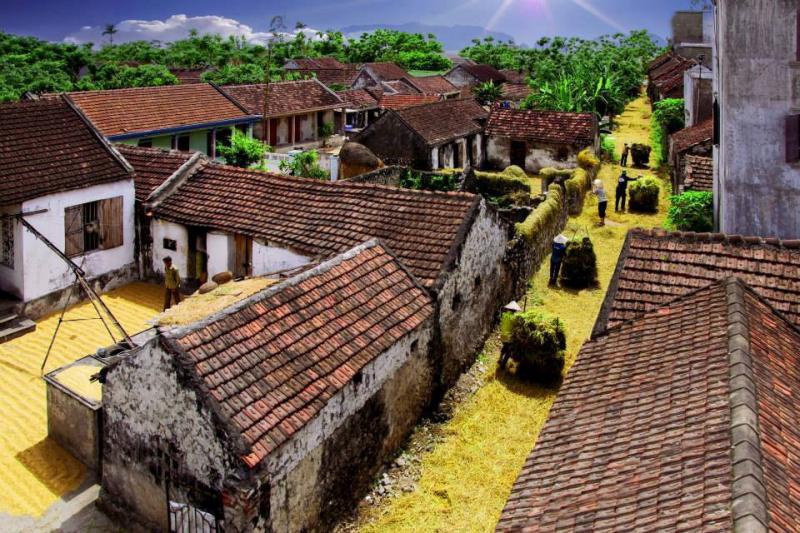
Fig. 1. A typical old village in Northern Vietnam, a peaceful place in the peace time but a redoubtable military fortress during the wartime.
It was called the “wet rice civilization” , with the constructions of the remarkable system of dykes and waterworks along the Red River Delta since the era of Đông Sơn Culture (1000 BC to 1 BC) , which ensured the agricultural production and food security of the country. The village was indeed the cell of the Vietnamese society. There were a thousand of small villages located along the Red River Delta, each village was virtually a military fortress , with thick layers of bamboos as its impregnable walls. Inside, the village had its own local government and military system. A thousand village definitely formed a giant and formidable fortress: Vietnam.
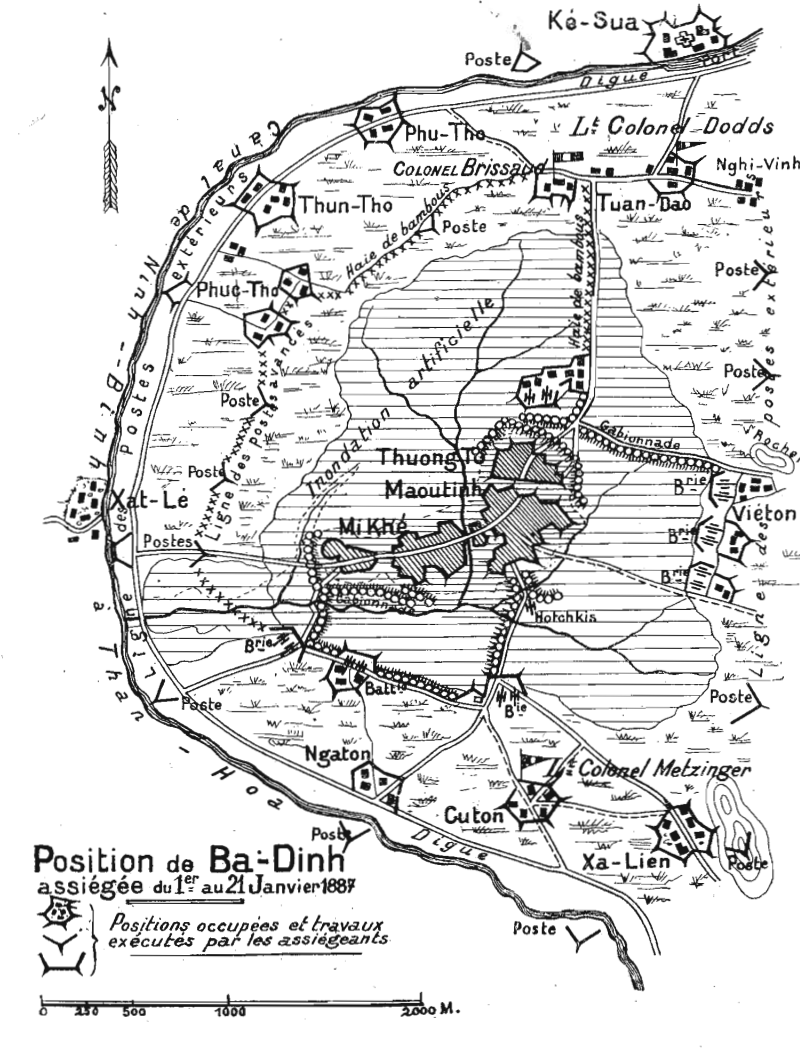
Fig. 2. A French military map indicates the 03 villages of Thượng Thọ, Mậu Thịnh and Mỹ Khê (Thanh Hóa Province) during the Siege of Ba Đình (1886–1887) . They were indeed the typical military fortresses with thick bamboo layers and flooded rice paddy fields. Source: J. Masson, “Souvenirs de l'Annam et du Tonkin” (Paris, 1903), p. 217.
The “wet rice civilization” was far superior in comparison with nomadic cultures in ancient time . In fact, the nomadic cultures were not constructive and productive by its constant wars and unstoppable looting for food and shelters. This was also the answer why a lot of nomadic cultures were decisively defeated or automatically absorbed into the Vietnamese society, such as the Mongols invasions of Vietnam throughout the XIII century .
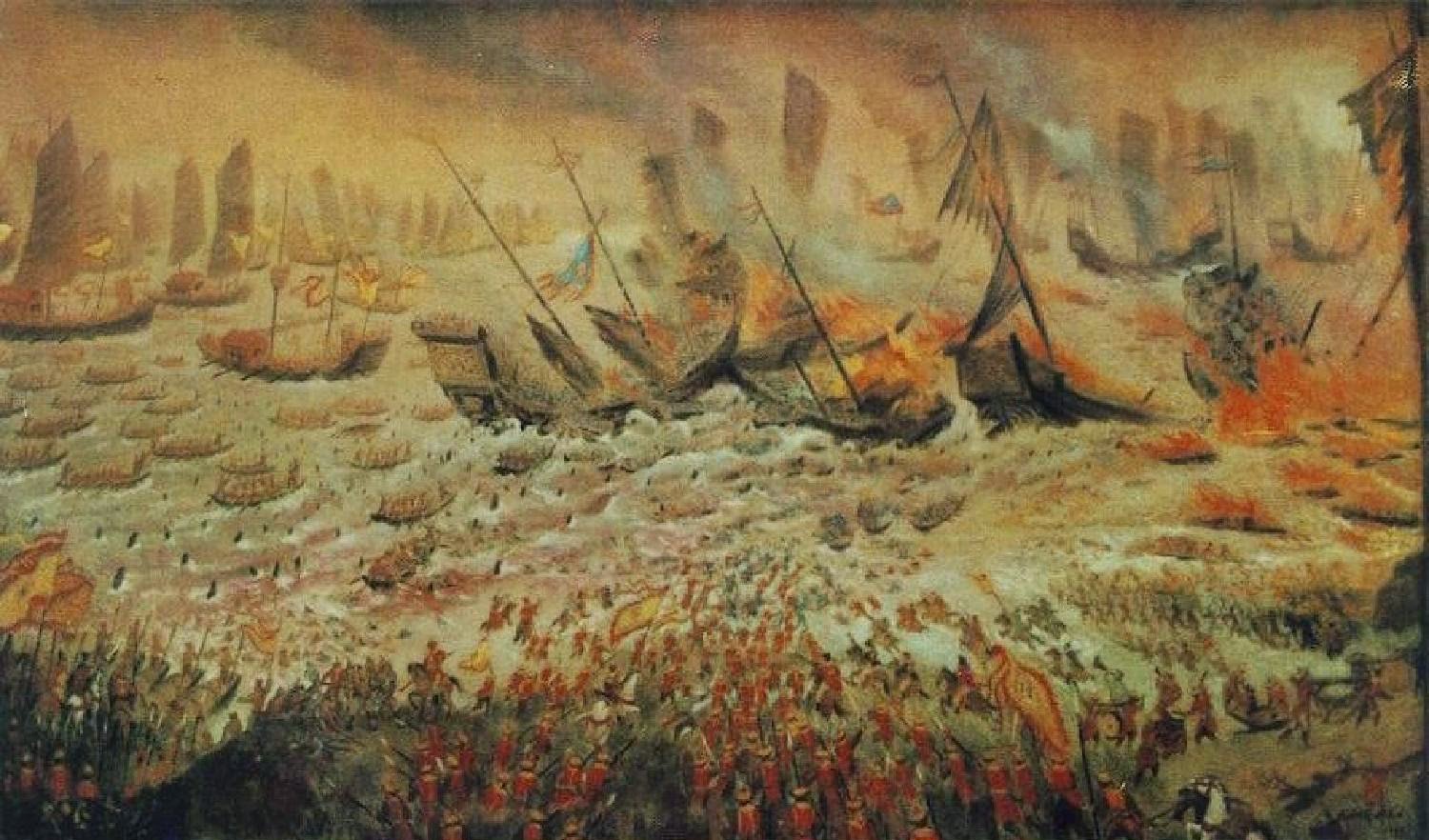
Fig. 3. The Battle of Bạch Đằng River in 1288, which put the end to the Third Mongol invasion of Vietnam (1287–1288) .
At that time, the Mongols faced an infinite series of “fighting villages”, or a series of natural military fortresses that they could not conquered. Hence, the invaders had to fight an “infinity war” against the village resistance, while the Royal Army of Trần Dynasty had enough time to regroup, strike back and subsequently smashed the invading forces not only one but three times, even when the Mongol Empire was the most powerful empire on Earth at that time.
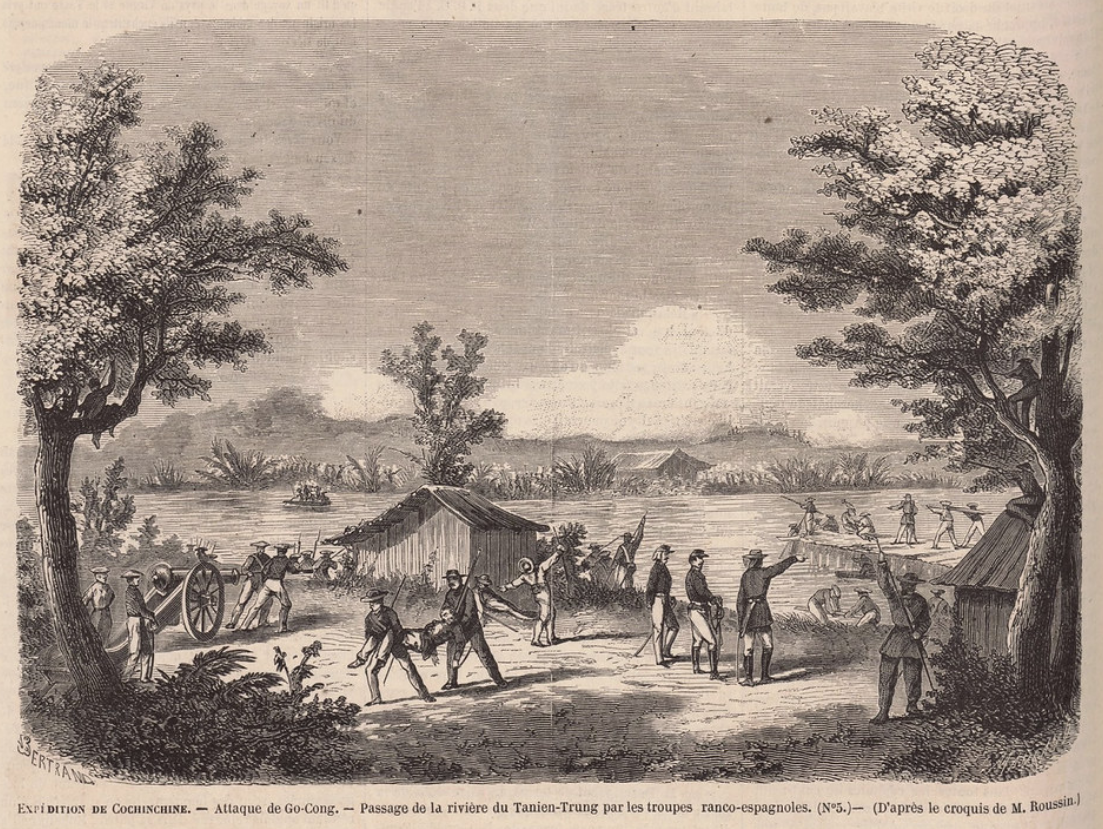
Fig. 4. French marines in the Battle of Gò Công during the “Cochinchina Campaign” in Southern Vietnam (1863).
When the French colonists came to Vietnam for the first time (1858–1862), they also met the fierce resistance from Vietnamese villages and its citizens. Léopold Pallu de la Barrière (1828–1891), a French naval officer , described what he experienced about how the Vietnamese villagers reacted:
Original French text:
“Le fait est que le centre de résistance était partout , subdivisé à l'infini, presque autant de fois qu'il y avait d'Annamites. Il eût été plus juste de considérer c haque paysan qui liait une botte de riz comme un centre de résistance . C'est l'inconvénient de ces luttes sur un territoire, où l'ennemi peut vivre et se cacher.”
(Histoire de l'expédition de Cochinchine en 1861, Paris, 1888, p. 245)
English translation:
“The fact is that the center of resistance was everywhere, infinitely subdivided, almost as many times as they were divided into the individual Annamites. It would have been fairer to consider each villager who is carrying a bunch of rice as a center of resistance . This is the disadvantage of these struggles on a territory, where the enemy can live and hide.”
(History of the Cochinchina Expedition in 1861, Paris, 1888, p. 245)
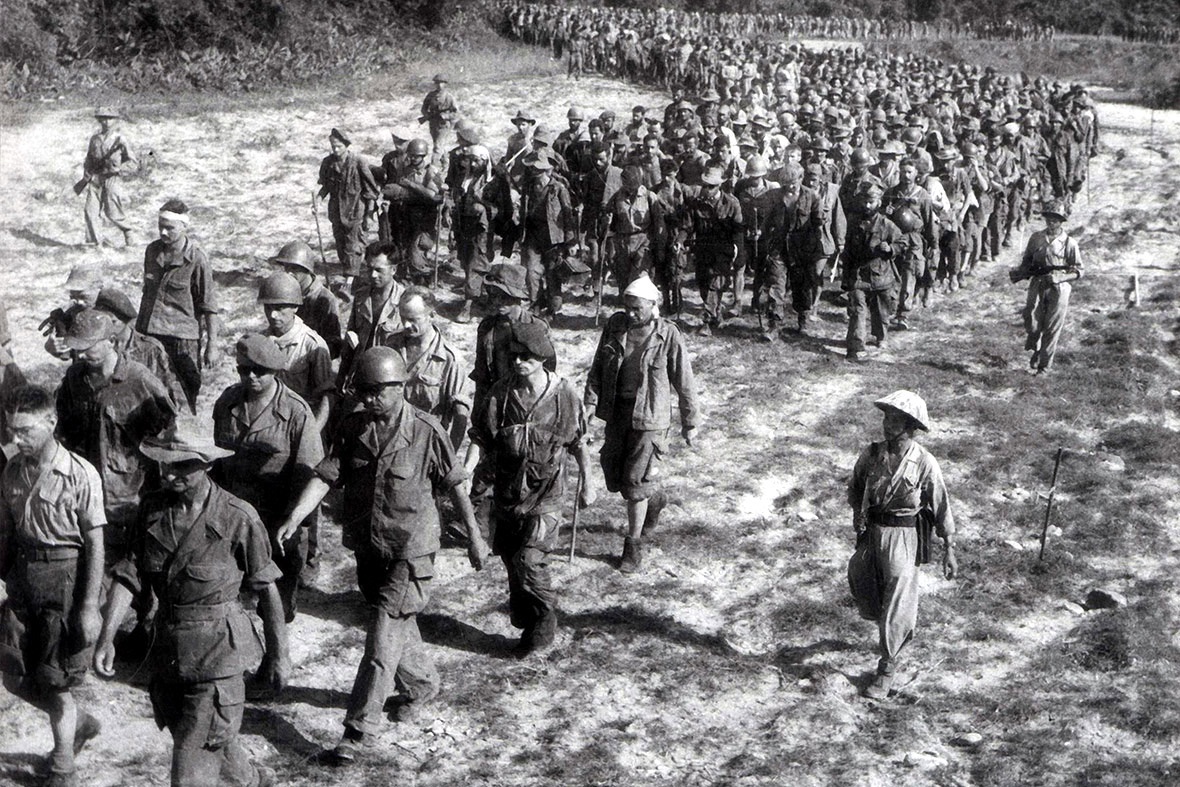
Fig. 5. Aftermath of the Battle of Điện Biên Phủ (1954), which put the end of French colonialism in Vietnam.
His words undoubtedly rang true, like the warning shots to other colonists and imperialists. The French colonists failed to understand what is the true meaning of a Vietnamese village, so they were kicked out of Vietnam even after 80 years of domination .
During the 1960s, the American interventionists also repeated the mistakes of the Chinese imperialists, the Mongolian invaders and the French colonists by waging a destructive war against the villages of Vietnam. Modern weapons such as rockets, napalm bombs and the agent orange could easily burnt the Vietnamese villages down to the ground.
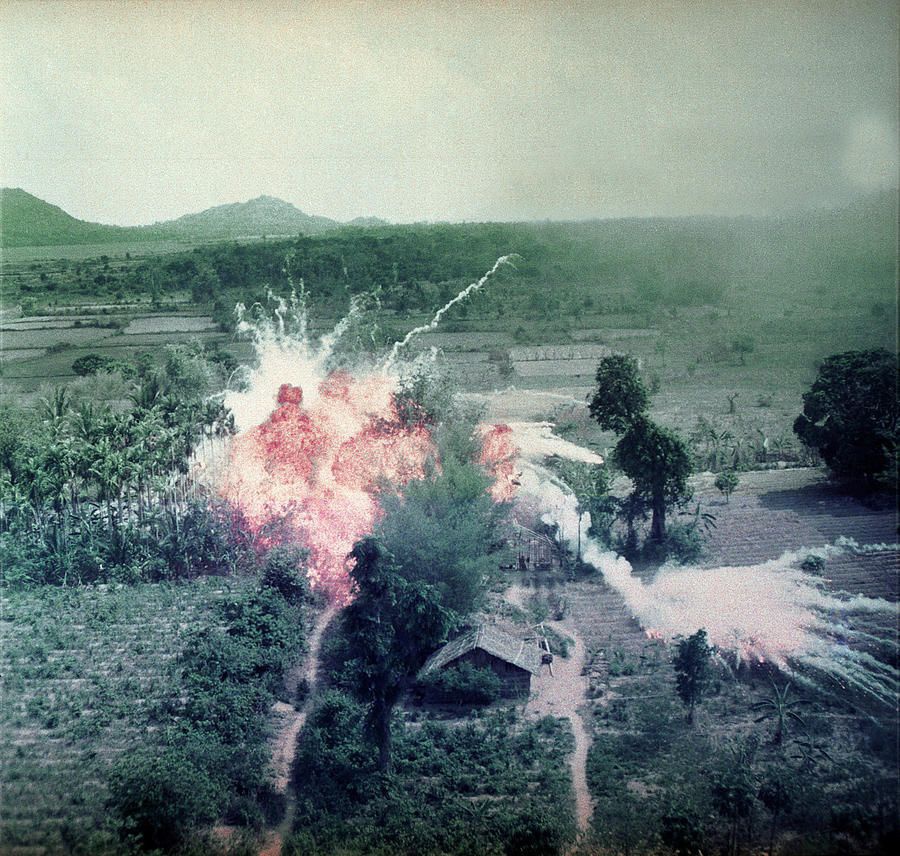
Fig. 6. Destruction of a village in Vietnam by napalm bombs during the Vietnam War.
However, what they did not expect was even when the Vietnamese village was disappeared from the surface of the Earth, again it rose itself from the underground , beneath the Earth. The Củ Chi and Vĩnh Mốc Tunnels in Vietnam are two perfect examples . From the underground villages, generations of Vietnamese continued the fight against the foreign invaders until the final victory in 1975 .

Fig. 7. “Operation Frequent Wind” or the tragic U.S. withdrawal from Vietnam (1975).
To summarize what is Vietnam or why Vietnam has always been a formidable village fortress, it should be better to let Professor Paul Mus (1902–1969) , a notable French sociologist who spent all of his youth in Vietnam, also author of the famous book “ Viet-Nam: Sociologie d'une guerre ”, explain to you :
“Throughout Vietnamese history they had catastrophes: they had Chinese, Mongolian invasions...where whole provinces were destroyed. You are not the first people who destroyed villages in Vietnam, unfortunately. And so, they are used to that, and it's a great tradition that the village is not lost, even when it disappears from the surface of the ground. Because the village is down below, down below with the tradition, down below with the people, the ancestors who have made the country, literally. The country is hand-made. There is not one square foot, I would say, a square thumb of the earth, that has not been built as it is by the peasantry in the past. And this survives. And when, will it after 100 years a village comes back. The descendants of a village come back to the village, they find the village and the village starts again.”
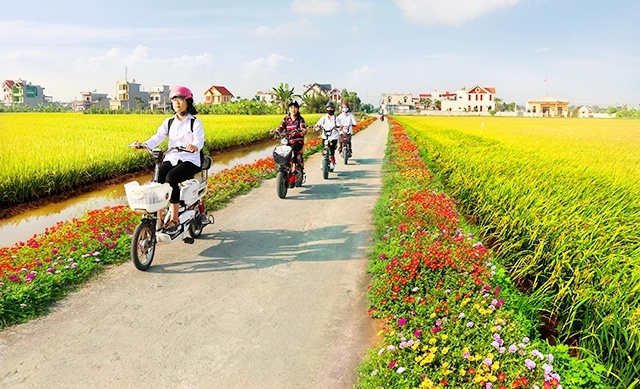
Fig. 8. “And when, will it after 100 years a village comes back. The descendants of a village come back to the village, they find the village and the village starts again.”
With my answer today, I hope you readers will know the real meaning of “what is Vietnam”. Once again, thank you very much for reading my answer and best regards.
Andrew

